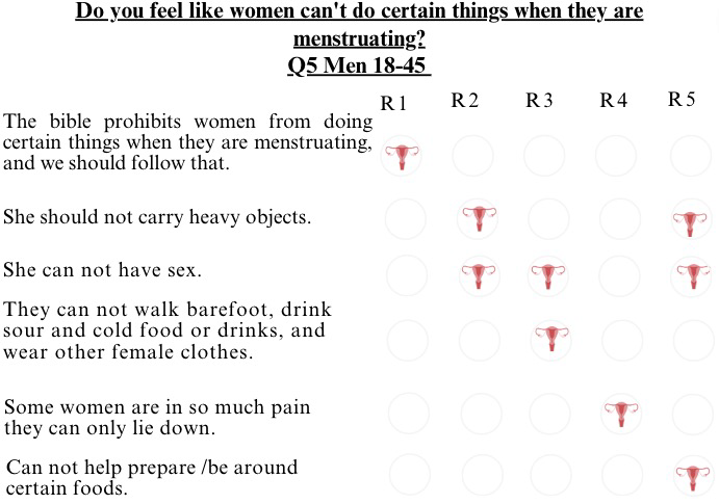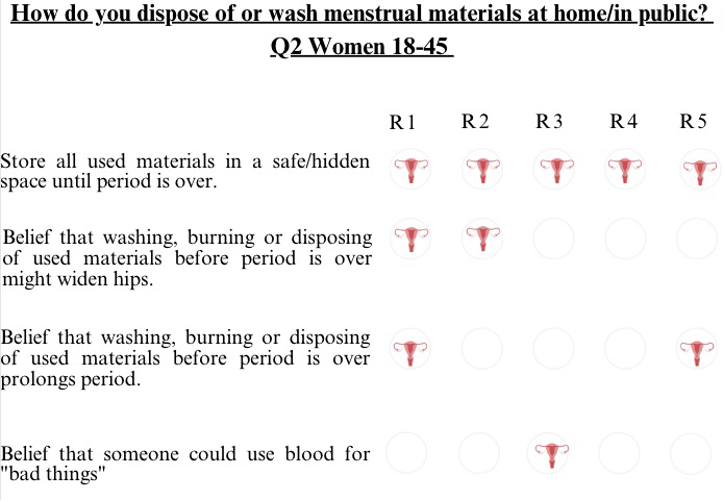This spring, Quinn Slingerland, a recent graduate of the University at Albany School of Public Health, interned with PWW, focusing her work on advancing our Menstrual Hygiene Management (MHM) program in Haiti. Results from her internship can be found in detail on this poster (click here to view).
The goal of Quinn’s internship was to identify the education level, community misconceptions, and taboos regarding menstruation amongst all community members in Limonade, Haiti in order to expand and improve the current PWW menstruation (training) module.
In addition to researching best practices in developing countries, Quinn worked with the PWW team in Haiti to conduct primary research.
Results from Quinn’s work highlighted the following:
- Women understand that menstruation is a natural occurrence and is a major component of pregnancy, but they do not know the biology of menstruation.
- Men avoid conversations about menstruation because they “do not like blood”
- Girls feel as though the information about menstruation they have received from their mothers or female family members is limited due to their own lack of education/knowledge.
- Community misconceptions influence how women perform MHM.
- Lack of running/clean water greatly influences MHM practices amongst women.
- Lack of safe sanitation facilities.
Example of questions and responses (left is a question asked of men; right is a question asked of women):
Recommendations to incorporate insights gained include:
- Partnering with the local health clinic to provide sex education courses to adults of all ages.
- Expanding the menstruation module offered at school to go further into the biology of menstruation, the menstrual cycle, hormonal changes women may experience, etc.
- Provide additional local resources for all ages and genders on any discussed topics.
- Ensure the data collected is utilized for monitoring and evaluation.
- Capacity training for the community agent.
With many of these components already being woven into PWW’s MHM program, Quinn’s work will be a valuable guide as we continue the program’s expansion in Limonade.


